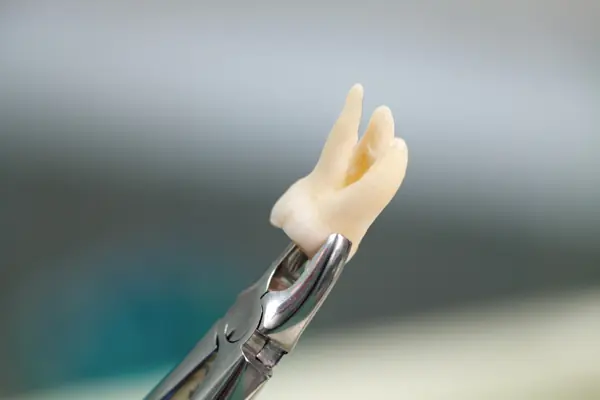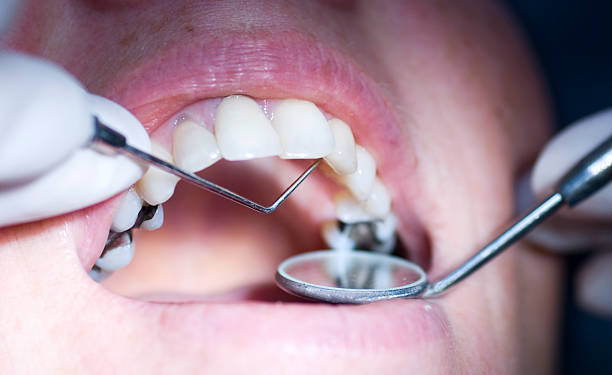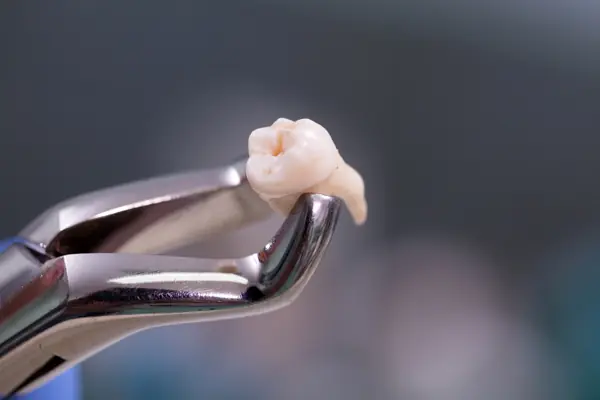Why Some People Recover Faster From Extractions Than Others—Science Explains

We all know someone who seems to bounce back quickly after a tooth extraction, while others are left dealing with pain and swelling for days. Ever wondered why? It’s not just luck—there’s actual science behind how quickly some people recover.
Factors like genetics, overall health, and even how well you follow aftercare instructions all play a role in the speed of your recovery. Some people are just built to heal faster than others, and understanding why can make a big difference in how we approach our own recovery process.
What Factors Affect the Speed of Recovery After a Tooth Extraction?
While it’s true that tooth extractions are relatively common and routine procedures, the recovery process can vary significantly between patients. Some people are able to return to their daily routine within a day or two, while others may struggle with prolonged pain and swelling. Several factors come into play when determining how quickly someone recovers after a tooth extraction.
1. The Complexity of the Extraction
The first factor that influences the speed of recovery is the complexity of the extraction. Not all extractions are created equal. A simple extraction, where the tooth is visible and can be easily removed, typically leads to a quicker recovery than a surgical extraction.
A surgical extraction involves removing teeth that are broken, impacted, or located below the gum line, which can result in more extensive tissue manipulation, longer healing times, and a higher likelihood of complications.
2. Age
Age plays a significant role in the recovery process. Younger people generally heal faster than older adults. This is because younger individuals have more robust immune systems, faster cell regeneration, and better circulation. In contrast, as people age, the body’s ability to regenerate cells and tissues naturally slows down, leading to longer recovery times and a higher risk of complications.
3. Aftercare and Hygiene
How well a patient follows aftercare instructions significantly influences the healing process. After a tooth extraction, your dentist will likely give you specific instructions for taking care of the extraction site, including how to clean the area, what to eat, and how to manage discomfort.
Failing to follow these instructions—such as neglecting to keep the area clean or ignoring advice to avoid certain foods can lead to infections, delayed healing, and unnecessary complications.
4. Post-Extraction Complications
Sometimes, complications can arise that delay the recovery process. These can include infection, dry socket (when the blood clot at the extraction site dislodges), or excessive bleeding. The presence of such complications can lengthen the time it takes for the area to fully heal and cause increased pain and discomfort.
How Does A Person’s Overall Health Influence Healing After An Extraction?
Overall health is one of the most significant factors influencing how quickly someone heals after a tooth extraction. The body’s ability to fight infections, repair tissue, and regenerate cells is closely tied to your general health status. Here are some health-related factors that can either speed up or slow down recovery:
1. Immune System Strength
A strong immune system is vital for healing after an extraction. People who are generally healthy and have a well-functioning immune system tend to recover more quickly, as their bodies can efficiently fight off potential infections and promote tissue repair.
On the other hand, individuals with weakened immune systems—due to factors like autoimmune diseases, HIV/AIDS, or medications that suppress the immune system—may experience slower healing and an increased risk of infection.
2. Chronic Conditions and Diseases
Chronic health conditions such as diabetes, heart disease, or hypertension can slow down the body’s ability to heal. For example, diabetes can impair circulation and slow the healing of wounds, leading to delayed recovery. People with chronic conditions may also have an increased risk of infection, which can further complicate the healing process.
3. Nutrition and Diet
A healthy diet plays a crucial role in healing after an extraction. Proper nutrition helps provide the body with the vitamins and minerals it needs to repair tissue, fight off infections, and promote optimal healing.
Deficiencies in key nutrients like vitamin C, vitamin A, and zinc can slow down the healing process. Conversely, a well-balanced diet rich in nutrients, such as leafy greens, lean proteins, and fruits, can speed up recovery and reduce the risk of complications.
4. Hydration
Dehydration can delay healing by affecting the body’s ability to circulate blood, carry nutrients to the wound, and flush out toxins. Staying hydrated is crucial during the recovery period to support the healing process and help reduce the risk of complications like dry socket or infection.
Why Do Some People Experience More Pain And Swelling Than Others After An Extraction?
It’s common to experience some pain and swelling after a tooth extraction, but the severity of these symptoms varies between patients. Some people might barely feel discomfort, while others may have swelling that lasts for days. Why is this?
1. Pain Tolerance
One key reason why people experience different levels of pain and swelling is individual pain tolerance. Pain tolerance is highly subjective and can vary from person to person. People with a higher pain threshold may experience less discomfort, while those with a lower pain threshold might find the post-extraction period more uncomfortable.
2. Blood Supply and Circulation
Swelling is often a result of increased blood flow to the extraction site, as the body works to heal the wound. Individuals with better circulation or those who are younger may experience less swelling overall. However, those with poor circulation, such as older adults or individuals with vascular issues, may experience more pronounced swelling and a slower reduction in inflammation.
3. Medication and Pain Management
Another factor is how well a person manages pain post-extraction. Following the dentist’s prescribed pain management plan can help control pain and reduce swelling. If a person skips prescribed medications or doesn’t take them on time, it can lead to higher levels of pain and prolonged discomfort. On the flip side, individuals who adhere to their pain management plan tend to experience less pain and swelling.
4. Extraction Site and Complexity
As mentioned earlier, the complexity of the extraction plays a significant role in post-operative discomfort. Simple extractions are typically less painful and result in less swelling, while surgical extractions, especially those involving impacted teeth, may cause more significant pain and swelling due to the extra manipulation required to remove the tooth.
How Does Genetics Play a Role in the Recovery Process After a Tooth Extraction?
Genetics may play a larger role in the recovery process than you might expect. The way your body heals, including after a tooth extraction, can be influenced by your genetic makeup. Here’s how:
1. Healing and Tissue Regeneration
Some people are genetically predisposed to heal faster than others. If you have a family history of fast wound healing, you may find that your body recovers more quickly from an extraction. Conversely, individuals who have slower healing times, due to genetic factors, may experience longer recovery periods and a higher likelihood of complications.
2. Immune System Response
Genetics also influences the strength and efficiency of your immune system. People with stronger immune systems, due to genetic factors, are generally better equipped to fight infections and promote healing. On the other hand, those with weaker immune systems (whether due to genetic predisposition or underlying conditions) may experience longer recovery times and increased susceptibility to infections.
3. Inflammatory Response
Another genetic factor that impacts recovery is the body’s inflammatory response. Some people may have a heightened or diminished inflammatory response based on their genetic makeup. A heightened inflammatory response can result in more swelling, redness, and pain post-extraction, while a diminished response may lead to a quicker and less painful recovery.
4. Collagen Production
Collagen is essential for tissue repair and wound healing. Some individuals produce collagen more efficiently than others due to genetic factors, which means they may experience faster recovery times after an extraction. People who have a genetic predisposition for slower collagen production may experience longer healing times and may be more prone to issues like dry socket or delayed tissue repair.
The speed at which a person recovers from a tooth extraction can be influenced by several factors, including overall health, genetics, pain tolerance, and the complexity of the extraction itself.
While some people bounce back in just a few days, others may experience prolonged discomfort or swelling due to their unique biological factors. Understanding these factors can help you better manage your recovery and have realistic expectations about the healing process.
Ready for a Smooth Recovery? Let Crescent Family and Cosmetic Dentistry of Columbia Guide You!
If you’re preparing for a tooth extraction or recently had one, Crescent Family and Cosmetic Dentistry of Columbia is here to ensure a speedy and comfortable recovery. Our expert team is dedicated to providing personalized care, guiding you through every step of your recovery, and offering tips to help reduce discomfort and swelling.
Don’t navigate your recovery alone—contact us to schedule a follow-up appointment or ask any questions you may have about the healing process. We’re here to make sure your recovery is as quick and smooth as possible, with the best care every step of the way!


